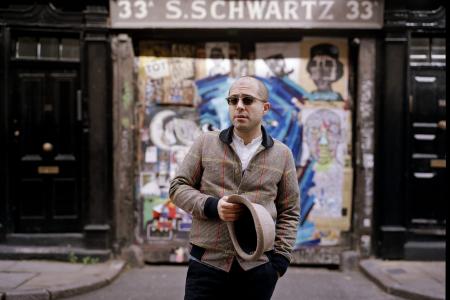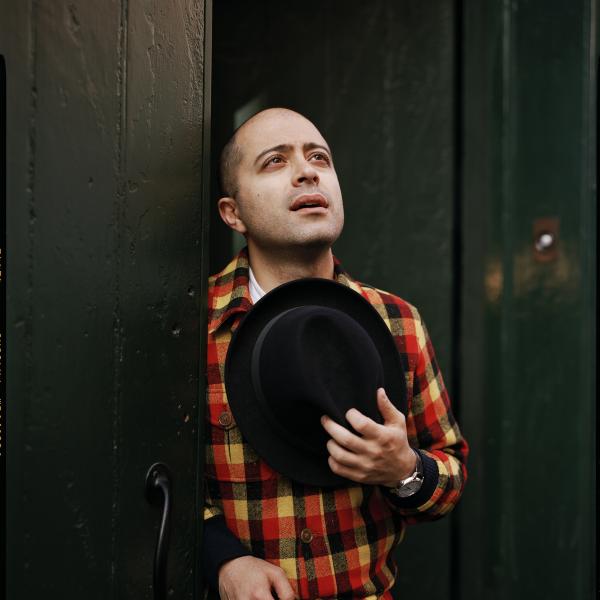
Mahan Esfahani has made it his life’s mission to rehabilitate the harpsichord in the mainstream of concert instruments, and to that end his creative programming and work in commissioning new works have drawn the attention of critics and audiences across Europe, Asia, and North America. He was the first and only harpsichordist to be a BBC New Generation Artist (2008-2010), a Borletti-Buitoni prize winner (2009), and a nominee for Gramophone’s Artist of the Year (2014, 2015, and 2017).
His work for the harpsichord has resulted in recitals in most of the major series and concert halls, amongst them London’s Wigmore Hall and Barbican Centre, Oji Hall in Tokyo, the Forbidden City Concert Hall in Beijing, Shanghai Concert Hall, Carnegie Hall in NYC, Sydney Opera House, Melbourne Recital Centre, Lincoln Center’s Mostly Mozart Festival, Berlin Konzerthaus, Zurich Tonhalle, Wiener Konzerthaus, San Francisco Performances, the 92nd St Y, Schleswig-Holstein Music Festival, Cologne Philharmonie, Edinburgh International Festival, Aspen Music Festival, Aldeburgh Festival, Madrid’s Fundacio Juan March, Bergen Festival, Festival Mecklenburg-Vorpommern, Al Bustan Festival in Beirut, Jerusalem Arts Festival, and the Leipzig Bach Festival, and concerto appearances with the Chicago Symphony, Ensemble Modern, BBC Symphony, Royal Liverpool Philharmonic, Seattle Symphony, Melbourne Symphony, Auckland Philharmonia, Czech Radio Symphony, Orquesta de Navarra, Malta Philharmonic, Orchestra La Scintilla, Aarhus Symphony, Montreal’s Les Violons du Roy, Hamburg Symphony, Munich Chamber Orchestra, Britten Sinfonia, the Royal Northern Sinfonia, and Los Angeles Chamber Orchestra, with whom he was an artistic partner from 2016 to 2018.
Recent and upcoming highlights include his Vienna Musikverein debut, a tour with the Academy of St-Martin-in-the-Fields, and residencies with the Royal Liverpool Philharmonic and Royal Northern Sinfonia. Building on the successes of two full evenings of new music for harpsichord and electronics at the Tectonics Festival and at the Barbican, he continues this work at Berlin’s Akademie der Künste and Prague’s Contempuls and Autumn Strings Festivals, including continuing work in promoting the modern re-discovery of the late Luc Ferrari’s Musique socialiste: Programme commun (1972) for harpsichord and tape. Particularly renowned for his championing of contemporary music, Esfahani has commissioned and premiered solo works and concertos from such composers as George Lewis, Bent Sorensen, Anahita Abbasi, Sunleif Rasmussen, Daniel Kidane, Laurence Osborne, Gary Carpenter, Harold Meltzer, Elena Kats-Chernin, and Miroslav Srnka.
His richly-varied discography includes six critically-acclaimed recordings for Hyperion and Deutsche Grammophon – garnering one Gramophone award, two BBC Music Magazine Awards, a Diapason d’Or and ‘Choc de Classica’ in France, and an ICMA.
Esfahani studied musicology and history at Stanford University, where he first came into contact with the harpsichord in the class of Elaine Thornburgh. Following his decision to abandon the law for music, he studied harpsichord privately in Boston with Peter Watchorn before completing his formation under the celebrated Czech harpsichordist Zuzana Růžičková. Following a three-year stint as Artist-in-Residence at New College, Oxford, he continues his academic associations as an honorary member at Keble College, Oxford, and as professor at the Guildhall School of Music and Drama in London. He can be frequently heard as a commentator on BBC Radio 3 and Radio 4 and as a host for such programs as Record Review, Building a Library, and Sunday Feature, as well as in live programmes with the popular mathematician and presenter Marcus du Sautoy; for the BBC’s Sunday Feature he is currently at work on his fourth radio documentary following two popular programmes on such subjects as the early history of African-American composers in the classical sphere and the development of orchestral music in Azerbaijan.
Born in Tehran in 1984 and raised in the United States, he lived in Milan and then London for several years before taking up residence in Prague.

